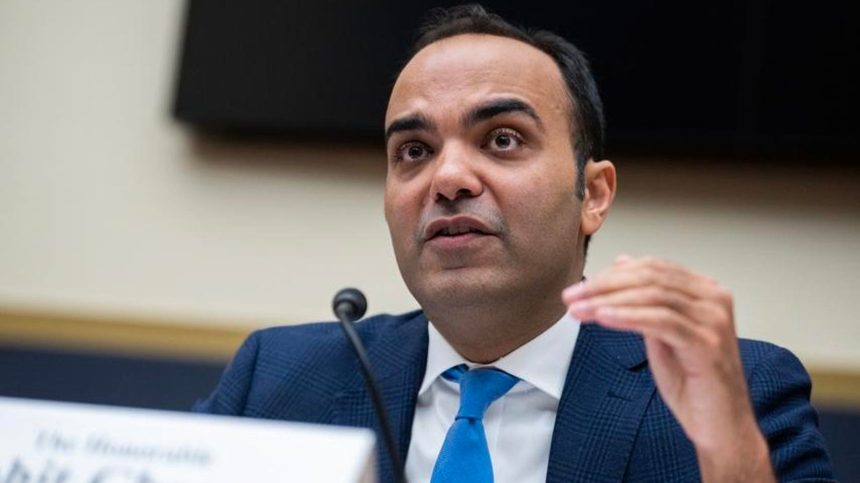A federal financial watchdog agency filed an enforcement action this week against a widely known student loan servicing agency and a collection of private student loan trusts. If approved, the student loan companies may have to pay millions of dollars in penalties, as well as $3 million in compensation to borrowers plus refunds or additional reimbursement.
The Consumer Financial Protection Bureau, an independent federal agency that oversees the financial services sector, announced on Monday that it filed the action against National Collegiate Student Loan Trusts and the Pennsylvania Higher Education Assistance Agency (known as PHEAA). The CFPB accused the entities of widespread “multi-year servicing failures” that harmed borrowers, particularly during the Covid-19 pandemic.
National Collegiate Trusts are a collection of corporate trusts that hold securitized private student loans. PHEAA typically services these loans on behalf of the trusts, doing business as American Education Services. Importantly, private student loans don’t qualify for federal student loan forgiveness and repayment programs, making these loans particularly problematic for borrowers who are experiencing distress.
“The CFPB has taken action against a web of investment trusts that failed student loan borrowers, including at the height of the pandemic,” said Rohit Chopra, Director of the CFPB, in a statement on Monday. “Our law enforcement action makes clear that investors cannot sidestep accountability by playing games of corporate musical chairs.”
Here’s the latest.
Private Student Loans Don’t Qualify For Federal Student Loan Forgiveness Or Flexible Repayment Options
Private student loans owned by National Collegiate Trusts and other lenders can be tremendously burdensome for some borrowers, particularly those with low incomes and individuals facing hardships. These types of loans don’t qualify for federal student loan forgiveness programs, such as Public Service Loan Forgiveness or disability discharges. They also don’t qualify for flexible repayment options tied to income, such as President Biden’s new SAVE plan.
When private student loan borrowers become unable to afford their payments, in many cases their only options are short-term deferments or forbearances. This can postpone payments for a time, potentially providing borrowers with a lifeline during periods of temporary hardship or unemployment. But private loan lenders and servicers must approve these requests.
National Collegiate Trusts are a particular type of private student loan entity. They are a collection of individual trusts which purchased securitized bundles of loan products issues by other commercial lending entities (like banks) more than a decade ago.
“The National Collegiate Student Loan Trusts are a group of fifteen securitization trusts organized under Delaware law,” explains the CFPB. “The National Collegiate Student Loan Trusts acquire, pool, and securitize student loans, which they then service. As of February 2024, the National Collegiate Student Loan Trusts collectively held approximately 163,000 private student loans with approximately $907 million in outstanding balances.” National Collegiate Trusts outsource servicing operations to third parties such as PHEAA, which operates as American Education Services.
CFPB Alleges Student Loan Servicing Failures By National Collegiate Trusts And PHEAA
In its enforcement filing this week, the CFPB alleges that National Collegiate Trusts and PHEAA failed to respond to borrower requests for relief between 2015 and 2021. These requests became particularly acute during the Covid-19 pandemic. This violated several federal statutes, alleges the agency.
“The CFPB’s complaint alleges that from 2015 until 2021, thousands of borrower requests—often seeking forms of payment relief—went unanswered,” said the agency’s statement. “These included requests for co-signer release, extension of forbearance or deferment, loan settlement or forgiveness, Servicemember Civil Relief Act benefits, or other forms of payment or interest rate reduction. The defendants failed to properly respond to borrower requests for years, including during the COVID-19 pandemic.”
In some cases, National Collegiate Trusts’ loan servicer “misrepresented to consumers that certain requests would be answered when, in fact, the company knew that they would not,” said the CFPB. In other cases, the servicer improperly denied borrower requests for Covid-19 natural disaster forbearance.
PHEAA maintains that it “had no authority to decision unique borrower requests without instruction from 2016-2021,” according to a statement provided to PYMNTS.
Student Loan Borrowers Could Get Millions In Compensation And Refunds
The enforcement action must be approved by a court in order for it to take effect. But if that happens, National Collegiate Trusts and PHEAA may have to pay more than $2 million in penalties to the CFPB’s victims relief fund.
In addition, borrowers may be entitled to compensation. This would include $3 million “in redress to borrowers,” which would come in the form of $200 payments for individuals “who did not receive timely responses to exception requests.” Borrowers may also receive additional relief, including refunds for payments made or reimbursements for fees.
Advocates for borrowers praised the CFPB’s action.
“Today’s action and proposed judgment is an important reminder that private student loan borrowers, although a smaller population than their federal student loan counterparts, are also plagued by predatory companies seeking to profit at their expense,” said Winston Berkman-Breen, Legal Director at the Student Borrower Protection Center, in a statement. “These companies either failed to respond to borrowers’ requests for assistance, or provided inaccurate information. Making borrowers wait years for responses from their servicers, as the CFPB’s complaint alleges, is unacceptable. We are encouraged to see the CFPB recognize this harm and put money back in the pockets of borrowers.”
This isn’t the first legal action the CFPB has taken against National Collegiate Trusts. A previous CFPB lawsuit alleged that the trusts brought improper debt collection lawsuits against borrowers in cases where the debt was time-barred by the applicable statute of limitations or they could not prove that the borrower owed the debt. That lawsuit is still pending in federal court, although a judge issued a key ruling in March that the trusts are covered by the Consumer Financial Protection Act.
Read the full article here
















